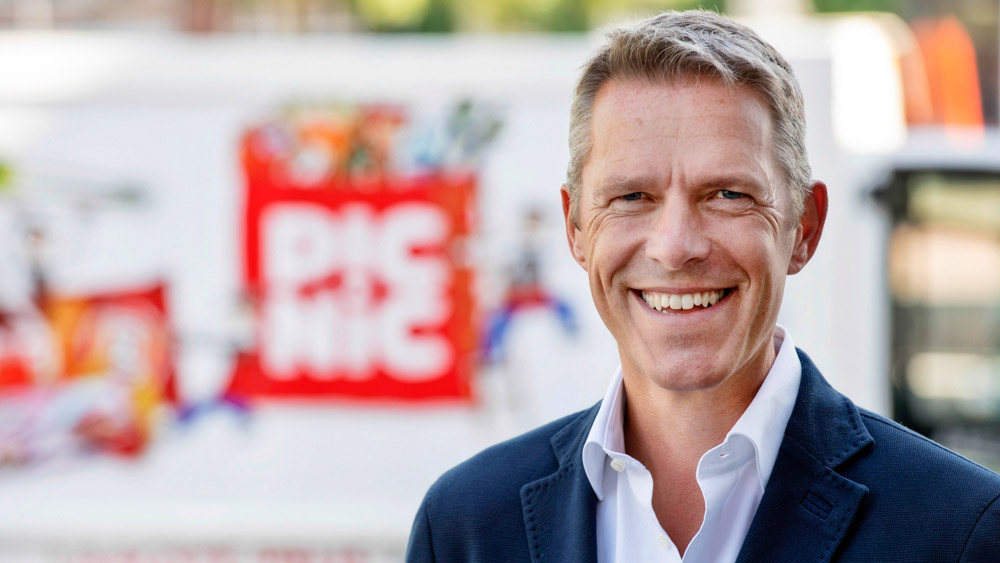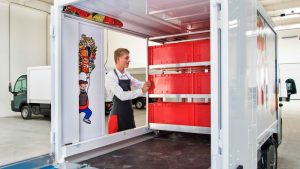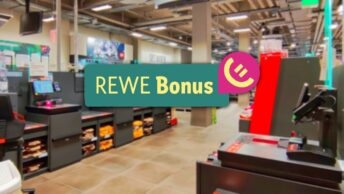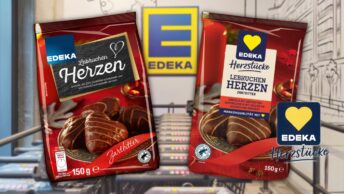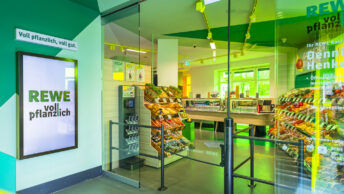Picnic ist a Dutch delivery service for groceries that was founded in 2015 and now is working in 35 cities in the Netherlands (including Utrecht, Den Haag, Rotterdam) where it serves 95.000 customers with 385 electric delivery vehicles – the biggest electric grocery fleet in Europe.
With a minimum basket of 25 Euro delivery is completely free.
Last year the company received 100 million Euro from four investment funds to roll out the service in more cities. This March Picnic is coming to Amsterdam.
With Supermarktblog.com Co-Founder Michiel Muller talks about what distinguishes Picnic from competitors (the bus vs taxi model), what the company learned about its customers in the first two years (most of them are ordering every week) and why it’s so important to have a streamlined logistics process (because saving time means saving costs).
Read the full background text here (in German only).
Explaining how (and why) Picnic was designed:
„There is no logical reason why people shouldn’t do online grocery shopping. Regular grocery shopping is pretty boring and cumbersome most of the time. It’s no fun going the supermarket and carrying home the same heavy stuff week after week.“
„The grocery market is the only market worldwide where the online option is more costly than the retail option, because of the delivery costs. In all the other markets – like electronics, fashion – it’s the exact opposite.“
„We found two main reasons why people don’t shop groceries online and the market is still below 5%. The first one is: They don’t want to pay delivery costs. And the second: They don’t want to wait two or three hours at home because there are long delivery windows. So we said to ourselves: If we can solve those two things by having free delivery and only 20 minute delivery windows we might have a product, that most people would buy.“
About Picnic’s main idea – offering a mainstream product:
„Picnic is a move from the premium market – where online grocery shopping is today in all European markets – to a mass product. I think that will finally move the needle. At least that is exactly what we see in Holland. We starteted in the small city of Amersfoort in the middle of the county. After two years we already have a 4 to 5 percent share of the whole market there and our online marketshare is higher than 80%.“
Why didn’t Picnic start in Hollands largest city (Amsterdam)?
„If we would have started in Amsterdam people would have said: Oh, just another delivery service for the happy few with high incomes. With our choice of Amersfoort we indicated that this is a product everyone can buy.“
Explaining the bus vs taxi model:
„The last mile is the most expensive part in distribution. Most delivery services are using a taxi model: Let’s say the two of us are neighbours, you order at 10 o’clock in the morning, I order at 11 o’clock – and in between the driver goes to the other side of town to do a delivery at 10:30. This is very expensive and very inefficient. We thought: If this is the taxi model, what would a bus model look like? So we came up with this solution: You can order every day of the week, but you have a fixed time, like the Milkman used to have: for example 3 o’clock in the afternoon on Tuesday, 9 o’clock in the evening on Wednesday, on Thursday it’s 5 o’clock in the afternoon and so on. You can choose which day suits you best, or order six times a week, if you like, because delivery will be free anyhow.“
„That was the most important part of our test in Amersfoort: Would people accept a scheme, that offers a fixed delivery time every day? What we found out was: Because it is free and because you have only a 20 minute time-frame to wait a home, people consider it as a better service and use it more frequently.“
„The milkman rounds also reduce the number of vehicle movements since our vans are not crisscrossing the city all the time. And since we’re 100% electric we do not cause small article emissions which especially in inner cities are a problem.“
What did the company learn about its customers in the first two years?
„What we see is that most people pick a day in the week that is convenient for them and they stick to that in the next week and the week after that. They get into a weekly rhytm very quickly.“
„Our average customer orders weekly. 20% use our service even twice a week, so they do all their shopping with Picnic.“
„When we started I thought people probably would buy detergent, diapers, beer – just to check if it would arrive. But from the very start 50 percent of the baskets were fresh products: fruits, vegetables, meat. People are so used to apps and online delivery services now, that they completely trusted us and just started using Picnic for their normal supermarket purchases .“
„We have the same penetration in all income groups and social classes. That’s especially interesting because a normal supermarket would have a specific target group. Picnic works everywhere and for everybody.“
Explaining „dynamic route planning“ – one of the main features Picnic relies on for its service:
„At 10 o’clock at night when everybody has ordered for the next day, we start our dynamic route planning schedule. There’s a lot of algorithm work and mathematics, that’s definitive the difficult part of getting the service right.“
„Our algorithm learns what the driving time between customers is. It also learns what time exactly it takes to deliver the groceries from the van to a door, because it depends on the size of the order and where the house is. Is it three storeys high without an elevator? Or next to the street? Ist it day or night? Is its raining or not? For example, it takes eight seconds more in the dark to find the house number. All these things are factored into our model to make sure that we have an exact estimate of how much time every stop will take, which makes our planning more efficient and the delivery time more precise for our customers.“
„We’re giving our customers a 20 minute time-frame. In 98 percent we get there on time, and our grocery radar shows you on the minute the position of you delivery van in an Uber-like way.“
Why is there is a waiting list for new customers when Picnic moves to new cities?
„When we started in Amersfoort we had 5.000 people signing up for the service at day 1 because there was so much press coverage. And we only had four delivery vans at the time. So we just had to make a waiting list overnight. We kept it, because when we are opening in a new city, we want to secure that our first delivery is perfect, so we let people in if we have new vans and new runners available.“
„You might be on the waiting list for two or three weeks, and as soon as fulfilment and distribution capacity is available, we add you to the store. Once you’re in, you will never be in line again. And every week you are waiting you are getting a small gift from us – a couple of bananas, oranges, cookies – that is added to your first shopping basket for free.“
Explaining local hubs where orders are loaded from trucks to delivery vehicles:
„As soon as they are picked, the orders [in the 3 distribution centers] are loaded in special frames to a truck and then driven to a local city-hub where the pre-picked groceries are put in the electrical vans to drive them to the customers.“
„You can do quite a lot of orders through one hub. There is no storage in the hub, it’s only transit. The truck arrives, the runners put the frames with the groceries in the electrical vans and are back 2 hours later to another two rounds of delivery.“
About the special features of Picnic’s small electric delivery vehicles:
„We designed the vehicles ourselves only for online grocery. The frames are loaded in the back, then we close the door and the runner (Picnic calls its delivery guys ‚runners‘ and they also have delivery girls) opens the van from the side by rolling up a canvas. That really helps because you don’t have to go into the van, meaning that you don’t need a meter wide path there. So the van can be much smaller which makes it easier to park it in front of someone’s door – which makes it quicker because you don’t have to walk 100 meters to the corner of the street where your vehicle is parked. It’s all based on the idea of making the process more efficient.“
About how online grocery shopping can help eliminating food waste:
„When all customers have placed their order by 22:00 hrs for the next day we send our orders to our suppliers. We know exactly what to deliver and therefore only order the exact amount of fresh products that we need. This reduces food waste considerably because we do not have to estimate what customers will buy – like in supermarkets – but know it exactly. It also means that the supply chain is shorter and customers get fresher products an therefore also throw away less products at home.”
Is Picnic coming to other European countries?
„Our priority is now Holland. Of course we’re adding more cities in 2018 in Holland every month.“
Read the full background text (in German only):
photo credits: Picnic

